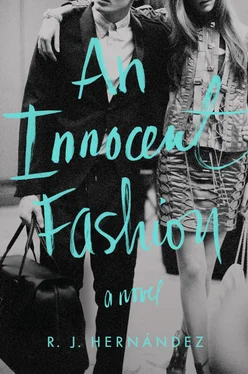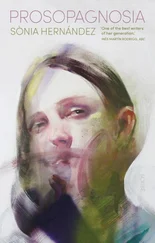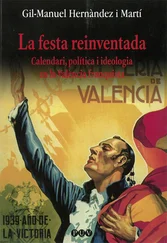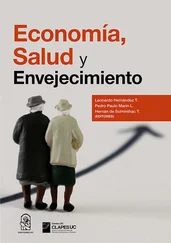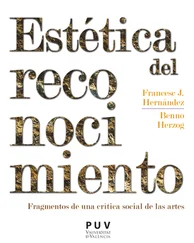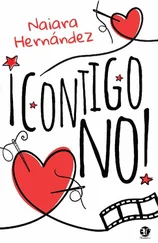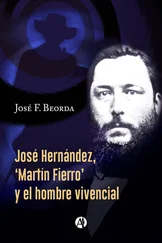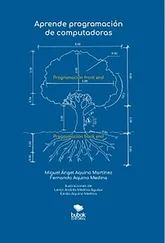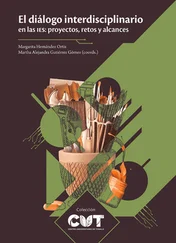It was the first and last time she ever directly posed such a question to me. My flushed cheeks and hollow intake of breath were answer enough for her, and the next day she said to me, “We’re going next Saturday. My treat.”
From then on, it was always this from Madeline—“ My treat, ” or “ You can pay next time ”—followed by a masterful demonstration of her unsurpassable social grace: a giddy laugh, then a harmless diversion (commentary on classwork, or the weather). In this way she ensured that there would never be a pause, that I would never have the opportunity to suggest a repayment, or express my gratitude, or demonstrate in any way that her gesture was a cover-up for some inherent inequality about which only I was distressed.
More so than the money itself, these gestures of consideration for my dignity distinguished Madeline as possessing the truest generosity I had ever known. Hers was a special kind of thoughtfulness that was rare in the twenty-first century — attesting her commitment to the manners of more chivalrous times. Therein, ironically through her unselfish view of money, the institutional upholder that she often derided, was her nonconformist spirit most pointed.
Madeline willingly took on the role of my benefactress — my governess and ward in one — who despite my halfhearted protests went to great lengths so I could share with her the fine life which was so clearly our mutual destiny, never knowing the full extent to which her charities fulfilled my lifelong yearnings. Every weekend it was tickets for the opera, and the ballet, and the Philharmonic — experiences denied by my life in provincial Corpus Christi, which she knew I would honor with my hands gripping the armrest and my body leaning toward the stage in wide-eyed appreciation. Following Tosca , or Verdi’s Requiem , would be surprise reservations to dimly sconced West Village restaurants for aged cabernet and croque monsieurs, and miniature cheesecakes topped off with sea salt, syrup, and twisted lemon slivers.
Pledging to include me in every aspect of her rarified life, Madeline even had her parents upgrade their donor’s package at the Metropolitan Museum so that I could accompany them to events, and when, on the opening night of the Baroque Legacies exhibit, she discovered a small hole in my thrifted tuxedo trousers, her reaction was tiered as such: a wounded expression, a string of choked-up words ( “But why wouldn’t you feel comfortable just telling me?” ), and a compulsory shopping trip to Bergdorf Goodman. There she had me try on a dozen black tuxedos — Dolce & Gabbana, Calvin Klein, Dior Homme, each more exquisite than the last — until finally she conceded that the three-piece from Giorgio Armani was good enough for me.
Our first “fight” unfolded shortly before Christmas, when I promptly declined her invitation to join her extended family on a holiday in the Swiss Alps.
She had already done too much for me. As much as I wished to share every moment with her, to accept from Madeline’s satin-lined pocket a fully paid vacation seemed an abuse of our love. Furthermore, if there was a single lesson my proletariat parents had successfully passed on to me, it was to never indenture oneself; for all of the grief conferred on me by its beige walls, my parents had often remarked with pride that they had accepted no loans in the purchase of their house. As a result the back of my head had already been spinning for weeks with insurmountable calculations as I tried, despite Madeline’s fiscal nonchalance, to tally the dizzying debt I felt would be my duty to somehow repay.
When I voiced my initial protestations, we were lunching under vaulted ceilings in Berkeley Hall as sunshine from arched windows filled every mahogany corner. Madeline put down her spoon, her silver tray bearing her typical lunch fare: a bowl of organic Greek yogurt and a cup of strawberries, with an abundantly annotated photocopy of a Noam Chomsky essay at her elbow.
“How presumptuous of me — of course you should spend Christmas with your own family,” she backtracked, “I didn’t mean to be insensitive, it’s just you never talk about them, and — if you want to come, we’ll just schedule your flight out of Texas on the twenty-sixth,” she said. “That way you can have Christmas with them, and stay for New Year’s with us. It would be a short holiday — I don’t know, ten days, but then we can catch the flight back together. Do you think that would be all right?” She raised a strawberry to her lips, and if I weren’t so embarrassed I could have laughed at her sweet, ridiculous assumption that I would oppose her perfect Swiss holiday because I preferred a miserable Noche Buena with pathetic presents and only my rowdy family as a consolation, with everyone spilling Coronas around a dried-up evergreen.
“It’s not the dates. ” I started. “It’s just—” and of course I froze, and turned the same color as the last time we had broached the issue of money — symptoms easily diagnosed by Madeline as an offense to her time-honored benevolence.
Her whole countenance dropped with the weight of a hundred acorns shaken from a tree. “For the love of God,” she spat. She tossed the half-bitten strawberry onto a napkin with disgust, and raised her voice: “The money again? You’re going to make me lose my appetite.”
Grant Goodwin passed us with a smile. He was trying to catch Madeline’s eye, but had to content himself with my halfhearted grimace on her sour behalf. “Please,” I said, reaching over the wooden table, “not so loud, I just—”
“Why are you so crass about this?” she hissed, and I had never heard such vitriol in her voice, not even in all her political condemnations of The Institution. “All I want is a vacation with you, and you have to act like a regular philistine about it — I mean, do you want to come with me or not?”
“Of course I do, but—”
“But nothing!” She jabbed her spoon through the jiggly surface of her yogurt bowl. “Jesus, you make it seem like money is important . It’s nothing you wouldn’t do for me, and what else should it get spent on? So what if you can’t pay me back? Who cares? One day you’ll be rich too, and it will all even out.” She let the handle of her spoon clatter with abandon against the side of the bowl—“Really, you’ve ruined my appetite.”
The display of embarrassment on my cheeks moved her to a reformation of her tone. “Listen to me, darling,” she said with delicate persuasion, her hand on my forearm and the aroma of her perfume activated by a slight lean toward me, “who ever knows what’ll happen to people’s money? It’s all made up —one day we could wake up, and it’ll be gone! Don’t you think we should spend it while we have the chance? If our society is lucky, everyone will come to their senses soon—” With Chomsky in agreement on the table, she made a grand blossoming gesture with both hands, like she was spreading confetti in the air. “Then we won’t even need vacations, or ballets, anything! People will be picnicking around naked, how God intended — like in a Manet painting!”
Coming from Madeline, it made perfect sense, and of course I ended up with her in the Alps, among the cable cars and powder snow and chalet-style towers over bird’s-eye panoramas, and on Christmas Day we all exchanged presents and drank too much génépi and Madeline and I waltzed to Mozart around our suite at the Gstaad Palace.
By escaping to Europe, into opera and ballets and the never-ending Arcadia that was our shared dream, we never conceded that we were pantomiming the traditions of a stodgy upper class; rather, we were defending the truest essence of humanity, by thriving in the name of beauty, art, culture — everything crucial in life. We fancied ourselves bohemians. If other people were the herd, we believed we’d escaped the enclosure of their oppressive limits. Of course, at the age of nineteen, we were still cattle — idealistic cattle, but cattle all the same — safe within the protected confines of youth, but lingering at its outskirts and hoping we were actually outside of it.
Читать дальше
